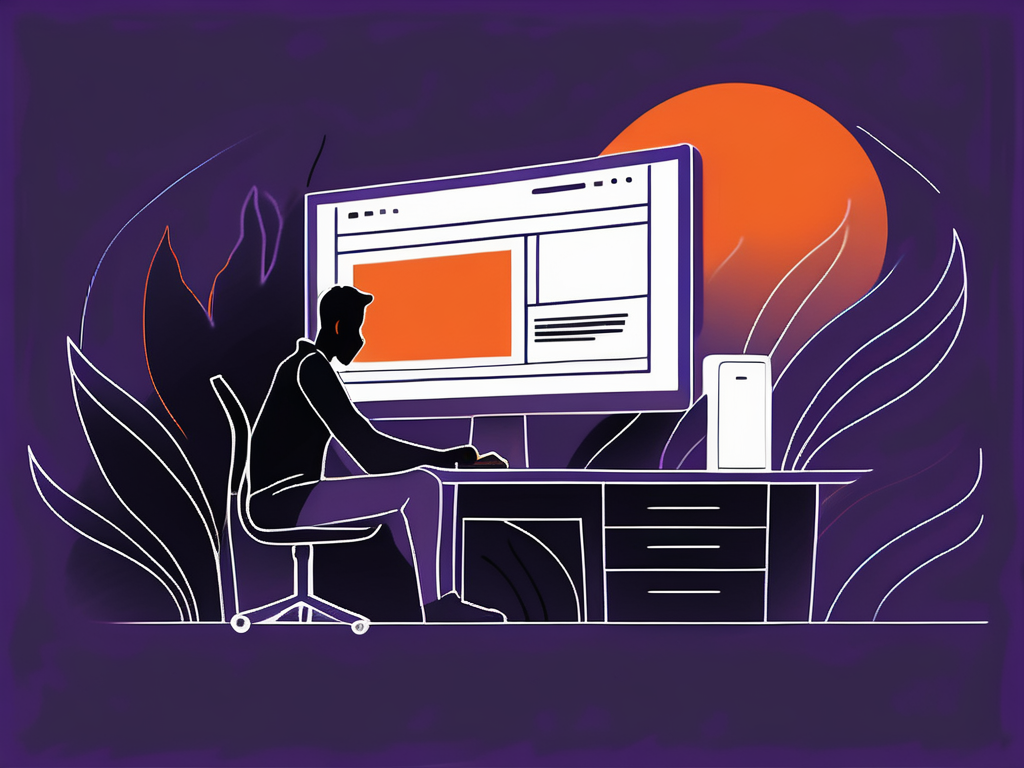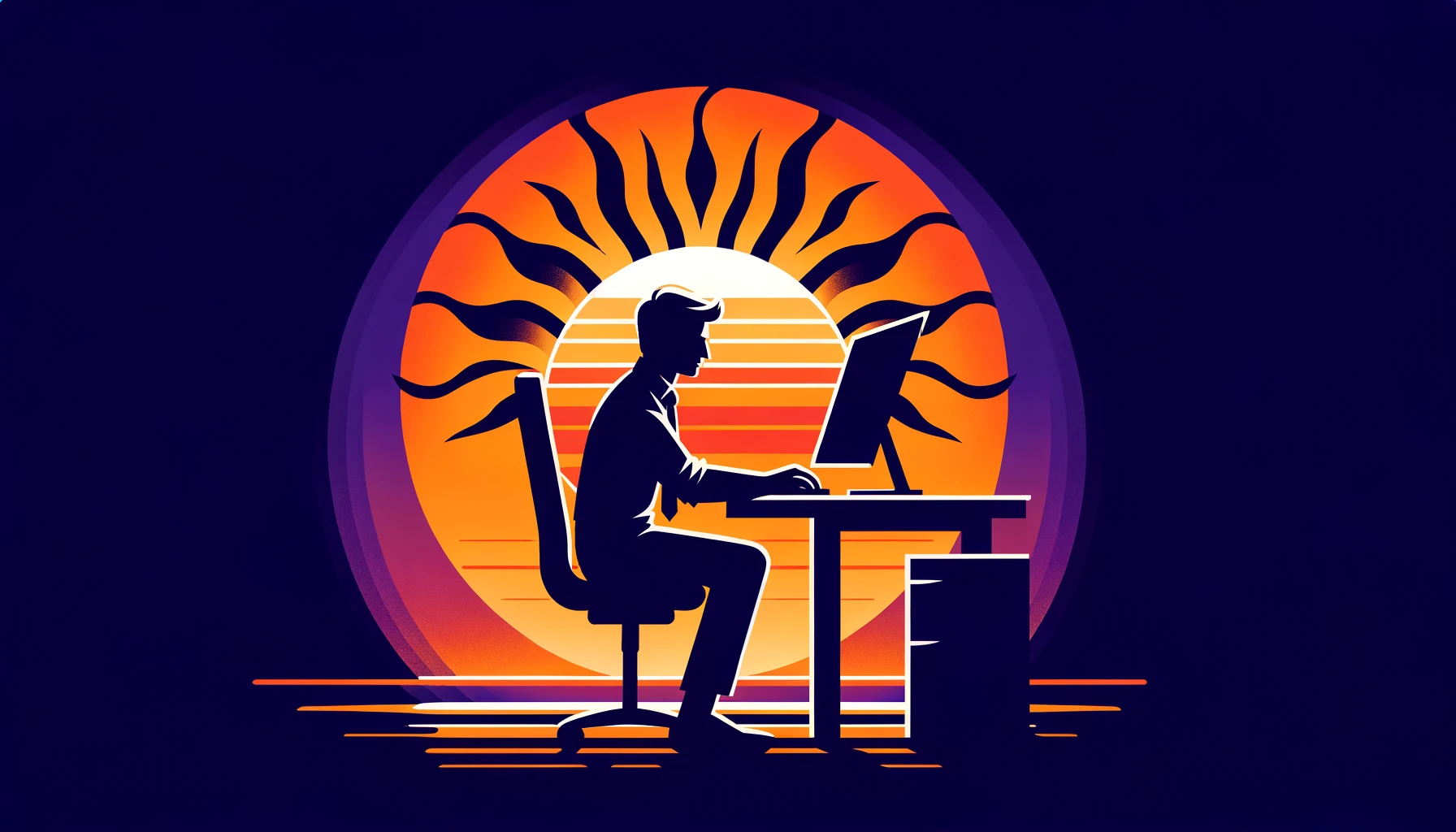With the ever-growing importance of digital presence in today’s world, web hosting is an essential service that ensures your website is accessible to users around the clock.
But what will happen if you suddenly stop paying for hosting services?
In this article we will:
- Short-Term Effects of Not Paying for Hosting
- Long-Term Effects of Not Paying for Hosting
- Legal and Financial Ramifications
- The Importance of Maintaining Web Hosting
The Consequences You Could Face If You Stop Paying for Hosting Services
Stopping the payments for your hosting could lead to several consequences. So, let’s examine what failing to fulfill your financial obligations in this digital ecosystem could mean for your website.
Consequence 1: Your Website Could Essentially Disappear
One of the first and most evident consequences of non-payment is the immediate impact on your website’s accessibility. Once your hosting service detects non-payment, they may suspend your account, leading to a temporary blackout for your website. Just like that, your website becomes the digital equivalent of a ghost town—deserted and unreachable.
For ecommerce businesses, this can be catastrophic, as it means potential lost sales and disgruntled customers. Even for personal websites or blogs, it can lead to a loss of readership and engagement.
Consequence 2: Website Performance and User Experience Might Be Seriously Affected
While the immediate blackout is distressing, the long-term impact on website performance and user experience can be equally detrimental. When you stop paying for hosting, your website’s resources may be severely limited or completely cut off.
- Your website may become slow to load, frustrating visitors who expect instant gratification in this age of fast internet.
- Increased downtime due to lack of maintenance and support can hurt your website’s credibility and disinterest potential customers.
- Without timely backups and updates provided by the hosting service, your website becomes vulnerable to security breaches and malicious attacks.
- Search engine rankings may plummet as search algorithms penalize websites for poor performance and high downtime.
But the consequences don’t stop there. Let’s delve deeper into the ripple effects of non-payment.
Consequence 3: Reputation Damage and Lost Opportunities
When your website is inaccessible or performs poorly, it reflects poorly on your brand. Visitors may perceive your business as unreliable or unprofessional, damaging your reputation in the process. This negative perception can spread through word-of-mouth or online reviews, further deterring potential customers from engaging with your website.
Additionally, non-payment can lead to missed opportunities. If your website is down during a crucial marketing campaign or product launch, you may lose out on valuable leads, sales, or partnerships. In a competitive online landscape, every missed opportunity can have a lasting impact on your business.
Consequence 4: Legal and Financial Ramifications
Non-payment for hosting services can also have legal and financial consequences. Depending on the terms of your hosting agreement, the hosting service may take legal action to recover the unpaid fees. This can result in costly legal battles and potential damage to your credit score.
Furthermore, if your website is generating revenue through online transactions, non-payment can lead to financial losses. Customers who encounter payment processing issues or security concerns due to your website’s non-payment may seek refunds or compensation, adding to your financial burden.
As you can see, the consequences of non-payment for hosting services extend far beyond a temporary blackout. It’s crucial to prioritize your financial obligations to ensure the continued accessibility, performance, and success of your website.
So, over the next few sections, we’ll discuss each of these consequences in more detail and show you how you can avoid any unwanted effects.
The Financial Implications of Stopping Payment
As the saying goes, “There’s no such thing as a free lunch.” When you neglect your hosting bill, there are financial implications lurking around the corner, waiting to unleash their wrath.
It’s essential to understand that the repercussions of non-payment extend beyond just the initial bill. Additional fees and penalties can quickly snowball, turning a manageable situation into a financial nightmare. These consequences serve as a stark reminder of the importance of staying on top of your financial obligations.
Additional Fees and Penalties
Non-payment of hosting services often comes with a price, literally. Hosting providers may charge late fees or penalties for non-payment or for reactivating a suspended account. These additional charges can quickly add up, putting a strain on your budget and potentially leaving you in a cycle of debt.
Remember, each day that you ignore your hosting bill, the hole you dig yourself into gets deeper. So, don’t let the penalties eat away at your precious resources.
Moreover, these fees can have a ripple effect on your overall financial health. Late payments can impact your credit score, making it harder to secure loans or favorable terms in the future. It’s crucial to nip these financial consequences in the bud before they spiral out of control.
The Cost of Restoring Your Website
Imagine this scenario: days turn into weeks, and weeks into months. Meanwhile, your website remains in suspended animation, unattainable by your loyal audience. Eventually, you come to your senses and decide to rectify the situation by settling your unpaid dues.
However, the road to redemption is costly. The hosting provider may charge you for the time period your account was suspended, along with additional fees for restoring your website and its data. Paying the price of neglect can be a painful experience.
Furthermore, the downtime experienced by your website during this period can have lasting effects on your online presence. Potential customers may have turned to competitors during your absence, leading to a loss of revenue that goes beyond the initial hosting fees. It’s a stark reminder that in today’s digital age, every moment of online availability counts towards your success.
Legal Ramifications of Non-Payment
Non-payment of hosting services doesn’t just have financial consequences; it can also have legal ramifications that go beyond your pocketbook.
Breach of Contract and Its Consequences
When you sign up for hosting services, you enter into a legally binding contract with the provider. Non-payment can be seen as a breach of this contract, giving the hosting provider the right to take legal action against you.
Depending on the terms of the contract, they may seek damages, including:
- The full payment of outstanding dues
- Legal costs
- Potential lost revenue
The consequences of finding yourself on the wrong side of a legal battle can be financially and emotionally draining, to say the least.
Potential for Legal Disputes
Non-payment can also open the door to legal disputes and tarnish your reputation. Hosting providers often have legal teams ready to take action against non-compliant clients. A legal dispute not only consumes time and money, but it can also damage your personal or business reputation.
Long-Term Effects on Your Online Presence
The repercussions of neglecting your hosting responsibilities can extend beyond immediate financial and legal woes. Let’s explore the far-reaching consequences that non-payment can have on your online presence.

Damage to Your Brand’s Reputation
Your website is often the face of your brand in the digital world, and a poorly maintained or inaccessible website sends a clear message to your customers: “We don’t care.”
In today’s hyperconnected world, news travels fast. Negative experiences, such as downtime or inaccessibility, can spread like wildfire across social media platforms and online forums. This can have a detrimental impact on your brand’s reputation, leading to a loss of trust, credibility, and ultimately, customers.
Loss of SEO Rankings and Web Traffic
If you thought things couldn’t get worse, think again. Search engines prioritize websites that offer a seamless user experience, and downtime or poor performance can cause your website to slide down the search engine results pages (SERPs).
As your rankings plummet, so does your visibility to potential customers. The loss of organic web traffic can be a severe blow, especially for businesses that rely heavily on their website for lead generation and sales.
Understanding The Importance of Web Hosting
In order to comprehend the consequences of non-payment, you also need to understand what web hosting is and why it matters. Think of web hosting as renting a space on the internet where your website resides. It provides the necessary technologies and infrastructure to make your website accessible to anyone with an internet connection.
Without proper web hosting, your website would be just a collection of files sitting on a computer, hidden from the digital world. Hosting services ensure that your website has the resources it needs to function optimally—think of it as the life support system for your online presence.
But what exactly does web hosting entail? Let’s dive deeper into the role it plays in maintaining website functionality.
The Different Types of Web Hosting Services
There are various types of web hosting services available, each catering to different needs and budgets. Understanding these options will help you make an informed decision when choosing the right hosting service for your website.
- Shared Hosting: This is like renting an apartment in a building where multiple tenants share the resources. In shared hosting, multiple websites share the resources of a single server. It is a cost-effective option for small businesses or individuals starting their online journey.
- Virtual Private Server (VPS) Hosting: Imagine having a private condominium within a larger building. With VPS hosting, a server is virtually partitioned to create multiple virtual servers, each with dedicated resources. This option provides more control and flexibility compared to shared hosting.
- Dedicated Server Hosting: This is like owning a standalone house. With dedicated server hosting, you have an entire server dedicated solely to your website. This option offers maximum control, security, and performance, making it suitable for high-traffic websites or businesses with specific requirements.
- Cloud Hosting: Imagine your website floating in the sky, supported by a network of interconnected servers. Cloud hosting uses a network of servers to host your website, ensuring scalability and reliability. It offers flexibility and cost-efficiency, making it a popular choice for businesses of all sizes.
Choosing the right hosting service for your website needs is crucial, as it determines the level of performance, security, and scalability you can expect.
Avoid ALL the Potential Issues by Paying for Hosting Regularly!
Neglecting your hosting responsibilities can have dire consequences for your online presence. From immediate blackouts and performance issues to financial burden and legal disputes, the consequences of non-payment can cast a long, dark shadow over your website and business.
So, remember to honor your hosting commitments, because in the digital world, neglecting your website’s needs can lead to irreparable damage.
